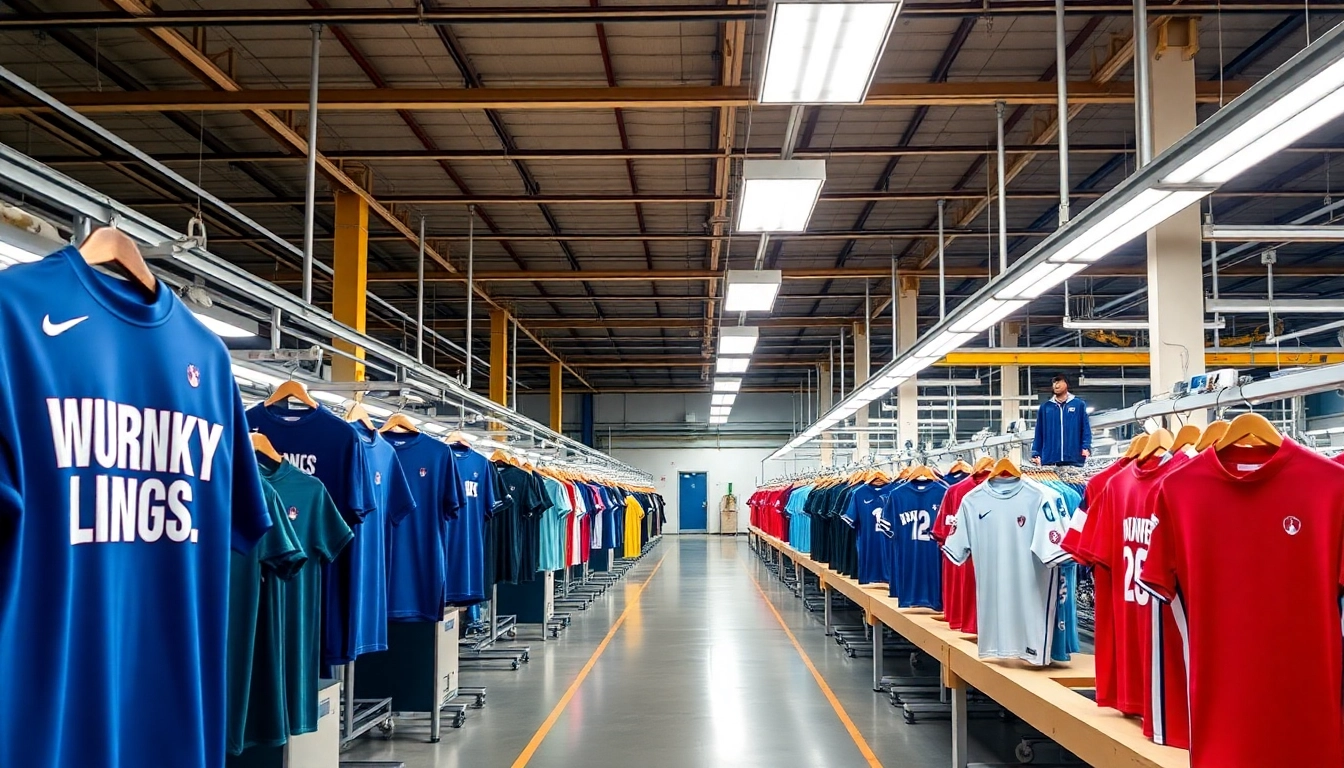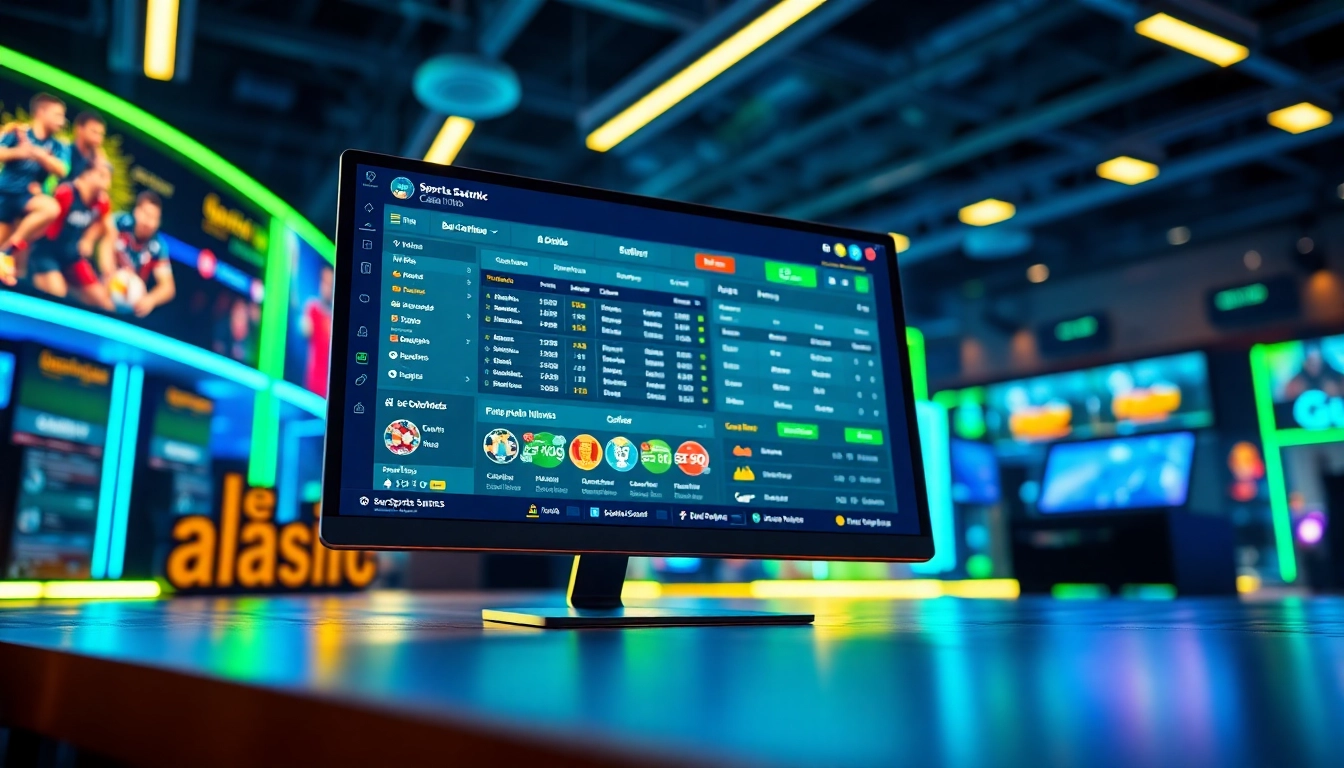Understanding the Private Label Sportswear Manufacturing Landscape in Pakistan
Pakistan has established itself as a global hub for manufacturing high-quality sportswear, driven by a rich history of craftsmanship, competitive pricing, and a robust industrial infrastructure. The country’s prominence in sportswear manufacturing is exemplified by numerous OEM and private label factories that serve both domestic and international markets. For brands seeking to develop their own line of custom sportswear, partnering with a trusted manufacturer in Pakistan offers numerous advantages, from customization options to cost efficiencies.
For those eager to explore the opportunities within this landscape, it’s essential to understand how the industry operates, current trends, and the key players shaping the market. Learn more about the Private Label Custom Sportswear Manufacturer in Pakistan to grasp how this industry can propel your brand forward.
Market Overview and Industry Trends
The sportswear manufacturing sector in Pakistan is experiencing consistent growth, bolstered by increasing global demand for affordable yet high-quality athletic apparel. The industry is characterized by a diverse manufacturing ecosystem, from small-scale artisans to large-scale factories with advanced machinery. This dynamic environment allows brands to select partners that align with their quality standards and production volumes.
Emerging trends include sustainable manufacturing practices, the adoption of advanced textile technologies, and the rise of private labeling and customized branding solutions. The adoption of eco-friendly fabrics and energy-efficient production techniques addresses growing consumer demand for sustainable products, positioning Pakistan as a forward-thinking manufacturing hub.
Furthermore, rapid advancements in digital printing, sublimation, and heat transfer techniques enable manufacturers to offer complex, vibrant designs tailored to customer specifications. The proliferation of online ordering platforms and supply chain integrations also streamline processes, making it easier for brands worldwide to collaborate with Pakistani manufacturers.
Key Players and Competitive Analysis
Pakistan hosts a multitude of established private label sportswear manufacturers, each with unique strengths. Leading companies such as Extreme Sportswear, Janletic Sports, and Athlio Sportswear are recognized for their comprehensive customization options and adherence to international quality standards.
These manufacturers differentiate themselves through their ability to produce a wide array of products—from performance wear to casual sports attire—using various fabrication techniques. They offer scalable production, from small initial runs to large volume orders, enabling brands to grow alongside their manufacturing partners.
Competitive analysis reveals that successful manufacturers emphasize transparency, flexibility, and innovation. They often invest in latest-generation machinery, maintain certifications such as ISO and OEKO-TEX, and foster collaborative relationships with clients for design development and quality assurance.
Common Challenges and Opportunities
While Pakistan’s sportswear manufacturing industry offers substantial benefits, there are challenges to consider. Some common obstacles include supply chain disruptions, longer lead times for complex customized orders, and maintaining consistent quality across large production runs.
However, these challenges open avenues for strategic improvements. Engaging with reputable manufacturers that have strong quality control protocols and reliable logistics can mitigate risks. Additionally, developing clear communication channels and detailed product specifications helps ensure the final product aligns with the brand vision.
Opportunities also abound in shifting consumer preferences toward performance-enhancing fabrics, personalized designs, and sustainable materials. Brands that leverage technological innovations and choose manufacturers committed to eco-friendly practices can position themselves as leaders in the evolving fitness and sportswear markets.
Choosing the Right Private Label Sportswear Manufacturer in Pakistan
Evaluating Production Capabilities and Quality Standards
The foundation of a successful partnership rests on a manufacturer’s ability to meet your quality expectations and production needs. Leading manufacturers in Pakistan typically possess state-of-the-art machinery, including computerized cutting tables, embroidery machines, and digital printing equipment, supporting a range of technical processes.
Assess quality standards through certifications such as ISO 9001 for quality management and OEKO-TEX for fabric safety. Request samples to evaluate fabric quality, stitching, and finishing. Additionally, inquire about their capacity for batch consistency and compliance with international standards such as ASTM or ISO performance norms.
Customization Options and Design Support
One of the primary advantages of working with Pakistani manufacturers is extensive customization. Top providers can assist with various design elements including fabric selection, cuts, logos, embroidery, sublimation prints, and colorways. Many factories also offer design consultation services to optimize product aesthetics and functionality.
Ensure your partner can handle complex designs, coordinate sample development, and accommodate iterative feedback. A collaborative approach helps bring your brand’s vision to life with authenticity and precision.
Pricing, Lead Times, and Minimum Order Quantities
Cost competitiveness is a major draw for brands choosing Pakistani manufacturers. Material costs and labor wages contribute to lower prices, especially for bulk orders. However, transparency in pricing structures, including setup fees, tooling costs, and additional charges for customization, is vital.
Leads times vary depending on order complexity and manufacturing scale, with typical turnaround periods ranging from 4 to 8 weeks. Clarify minimum order quantities (MOQs), which can range from as low as 50 pieces for customized orders to several hundred for large collections. Negotiating flexible MOQs can help startups and emerging brands test markets without significant investments.
Best Practices for Successful Private Label Sportswear Partnerships
Aligning Brand Identity and Product Specifications
In crafting a distinctive product line, clear articulation of your brand identity and product specifications is critical. Share detailed technical sheets, design mockups, and branding elements early in the process. This aligns manufacturing expectations and minimizes rework.
Establishing transparent communication channels and documentation ensures both parties understand quality benchmarks, material choices, and packaging requirements.
Effective Communication and Collaboration
Regular and proactive communication facilitates smoother operations. Leverage digital tools such as project management platforms and video calls to discuss prototypes, resolve issues, and track progress.
Building a collaborative relationship fosters trust, encourages innovation, and helps adapt to changing market demands swiftly.
Quality Control and Compliance Measures
Implementing thorough quality control protocols is essential. This includes pre-production inspections, in-process checks, and final quality assurance before shipment. Request factory audits or third-party inspections, especially for first-time collaborations.
Ensuring compliance with safety standards and environmental regulations not only mitigates legal risks but also enhances brand credibility.
Implementation and Scaling Your Sportswear Brand
Launching Your Custom Sportswear Products
Preparing for launch involves finalizing product designs, packaging, and marketing strategies. Coordinate with your manufacturer to ensure timely delivery and packaging that aligns with your brand image.
Sample testing, product photography, and pre-orders can build anticipation and gather initial feedback for improvements.
Optimizing Supply Chain and Logistics
Streamlining logistics with your manufacturing partner ensures efficient inventory management and order fulfillment. Consider utilizing freight forwarding services or working with local logistics providers experienced in international shipping.
Maintaining visibility over supply chain metrics helps preempt delays and optimize costs.
Measuring Performance and Customer Satisfaction
Use key performance indicators (KPIs) such as order accuracy, delivery times, defect rates, and customer feedback to assess your partnership’s effectiveness. Regular review meetings foster continuous improvement.
Collect customer reviews and monitor sales data to refine product offerings and enhance brand loyalty.
Future Outlook and Innovations in Custom Sportswear Manufacturing
Emerging Technologies and Sustainable Practices
The future of sportswear manufacturing in Pakistan is poised for growth through innovations like 3D knitting, smart textiles, and AI-driven design tools. Simultaneously, sustainable practices such as recycled fabrics, waterless dyeing, and solar-powered factories are gaining prominence, appealing to environmentally conscious consumers.
Adopting these advancements positions brands as leaders in innovation and sustainability, resonating with modern consumers’ values.
Expanding Market Reach and Export Opportunities
Pakistan’s strategic location facilitates access to markets worldwide, including North America, Europe, and the Middle East. Evolving trade policies and free trade agreements further support export growth. Manufacturers with international certifications and compliance are well-positioned to capitalize on these opportunities.
Building global partnerships and leveraging online platforms can help brands scale their reach exponentially.
Adapting to Evolving Consumer Preferences
The sports and athleisure market is shifting toward multifunctional and tech-enabled apparel. Features like moisture-wicking fabrics, UV protection, and embedded sensors are becoming standard expectations. Manufacturers who invest in R&D and adopt consumer-centric innovations will dominate future markets.
Brands should stay attuned to trends through market research, social media engagement, and sustainable development goals.

